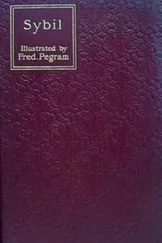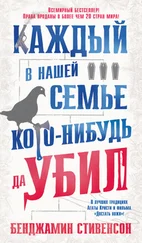‘This was a bad idea,’ Simon says. His blond curls are matted with sweat. Because Varya is the oldest and Simon the youngest, she feels that she should be able to mother him, but Simon is an enigma to her; only Klara seems to understand him. He talks less than the others. At dinner, he sits with his brow furrowed and his eyes glazed. But he has a rabbit’s speed and agility. Sometimes, while walking beside him to synagogue, Varya finds herself alone. She knows that Simon has only run ahead or dropped behind, but each time, it feels as though he’s vanished.
When the door opens again, that same fraction of an inch, Varya puts a hand on his shoulder. ‘It’s all right, Sy. You go ahead, and I’ll stand lookout. Okay?’
For what or whom, she isn’t sure – the hallway is just as empty as it was when they arrived. Really, Varya is timid: despite being the oldest, she’d rather let the others go first. But Simon seems comforted. He brushes a curl out of his eyes before he leaves her.
Alone, Varya’s panic swells. She feels cut off from her siblings, as if she is standing on the shore, watching their ships float away. She should have stopped them from coming. By the time the door opens again, sweat has pooled above her upper lip and in the waistband of her skirt. But it’s too late to leave the way she came in, and the others are waiting. Varya pushes the door open.
She finds herself in a tiny efficiency filled with so many belongings that at first she sees no person at all. Books are stacked on the floor like model skyscrapers. The kitchen shelves have been stuffed with newspapers instead of food, and nonperishables are clumped along the counter: crackers, cereal, canned soups, a dozen bright varieties of tea. There are tarot cards and playing cards, astrological charts and calendars – Varya recognizes one in Chinese, another with Roman numerals, and a third that shows the phases of the moon. There is a yellowed poster of the I Ching, whose hexagrams she remembers from Klara’s Book of Divination ; a vase filled with sand; gongs and copper bowls; a laurel wreath; a pile of twiglike wooden sticks, carved with horizontal lines; and a bowl of stones, some of which have been tied to long pieces of string.
Only a nook by the door has been cleared. There, a folding table sits between two folding chairs. Beside it, a smaller table has been set with red cloth roses and an open bible. Two white plaster elephants are arranged around the bible, along with a prayer candle, a wooden cross, and three statues: one of the Buddha, one of the Virgin Mary, and one of Nefertiti, which Varya knows because of a small, handwritten sign that reads NEFERTITI .
Varya feels a pang of guilt. In Hebrew school, she heard the case against idols, listening solemnly as Rabbi Chaim read from the tractate Avodah Zarah. Her parents wouldn’t want her to be here. But didn’t God make the fortune teller, just as He made Varya’s parents? In synagogue, Varya tries to pray, but God never seems to respond. The rishika, at least, will talk back.
The woman stands at the sink, shaking loose tea into a delicate metal ball. She wears a wide cotton dress, a pair of leather sandals, and a navy blue headscarf; her long, brown hair hangs in two slender braids. Though she is large, her movements are elegant and precise.
‘Where are my siblings?’ Varya’s voice is throaty, and she is embarrassed by the desperation she hears in it.
The blinds are drawn. The woman pulls a mug from the top shelf and places the metal ball inside it.
‘I want to know,’ Varya says, more loudly, ‘where my siblings are.’
A kettle whistles on the stove top. The woman turns off the burner and lifts the kettle above the mug. Water pours out in a thick, clear cord, and the room fills with the smell of grass.
‘Outside,’ she says.
‘No, they’re not. I waited in the hall, and they never came out.’
The woman steps toward Varya. Her cheeks are doughy and her nose bulbous, her lips puckered. Her skin is golden brown, like Ruby Singh’s.
‘I can’t do nothing if you don’t trust me,’ she says. ‘Take off your shoes. Then you can sit down.’
Varya slips off her saddle shoes and places them next to the door, chastised. Perhaps the woman is right. If Varya refuses to trust her, this trip will be for nothing, along with all they’ve risked for it: their father’s gaze, their mother’s displeasure, four sets of saved-up allowance. She sits at the folding table. The woman sets the mug of tea before her. Varya thinks of tinctures and poisons, of Rip Van Winkle and his twenty-year sleep. Then she thinks of Ruby. She knows things, the rishika, Ruby said. We can never repay her for that. Varya lifts the mug and sips.
The rishika sits in the opposite folding chair. She scans Varya’s rigid shoulders, her damp hands, her face.
‘You haven’t been feeling so good, have you, honey?’
Varya swallows in surprise. She shakes her head.
‘You been waitin’ to feel better?’
Varya is still, though her pulse runs.
‘You worry,’ says the woman, nodding. ‘You got troubles. You smile on your face, you laugh, but in your heart, you’re not happy; you’re alone. Am I right?’
Varya’s mouth trembles its assent. Her heart is so full she feels it might crack.
‘That’s a shame,’ says the woman. ‘We got work to do.’ She snaps her fingers and gestures to Varya’s left hand. ‘Your palm.’
Varya scoots to the edge of her chair and offers her hand to the rishika, whose own hands are nimble and cool. Varya’s breath is shallow. She can’t remember the last time she touched a stranger; she prefers to keep a membrane, like a raincoat, between herself and other people. When she returns from school, where the desks are oily with fingerprints and the playground contaminated by kindergartners, she washes her hands until they’re nearly raw.
‘Can you really do it?’ she asks. ‘Do you know when I’ll die?’
She is frightened by the capriciousness of luck: the plain-colored tablets that can expand your mind or turn it upside down; the men randomly chosen and shipped to Cam Ranh Bay and the mountain Dong Ap Bia, in whose bamboo thickets and twelve-foot elephant grass a thousand men were found dead. She has a classmate at PS 42, Eugene Bogopolski, whose three brothers were sent to Vietnam when Varya and Eugene were only nine. All three of them returned, and the Bogopolskis threw a party in their Broome Street apartment. The next year, Eugene dived into a swimming pool, hit his head on the concrete, and died. Varya’s date of death would be one thing – perhaps the most important thing – she could know for sure.
The woman looks at Varya. Her eyes are bright, black marbles.
‘I can help you,’ she says. ‘I can do you good.’
She turns to Varya’s palm, looking first at its general shape, then at the blunt, square fingers. Gently, she tugs Varya’s thumb backward; it doesn’t bend far before resisting. She examines the space between Varya’s fourth and fifth fingers. She squeezes the tip of Varya’s pinky.
‘What are you looking for?’ Varya asks.
‘Your character. Ever heard of Heraclitus?’ Varya shakes her head. ‘Greek philosopher. Character is fate – that’s what he said. They’re bound up, those two, like brothers and sisters. You wanna know the future?’ She points at Varya with her free hand. ‘Look in the mirror.’
‘And what if I change?’ It seems impossible that Varya’s future is already inside her like an actress just offstage, waiting decades to leave the wings.
‘Then you’d be special. ’Cause most people don’t.’
The rishika turns Varya’s hand over and sets it down on the table.
‘January 21st, 2044.’ Her voice is matter-of-fact, as if she is stating the temperature, or the winner of the ballgame. ‘You got plenty of time.’
Читать дальше
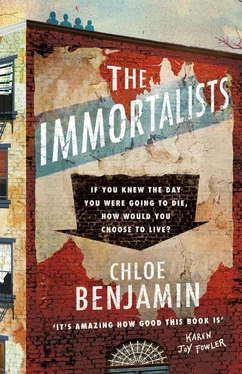

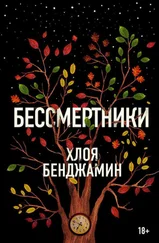

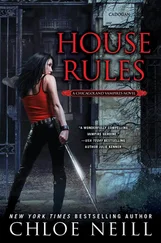
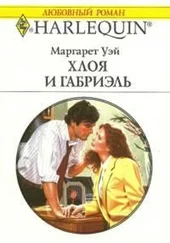
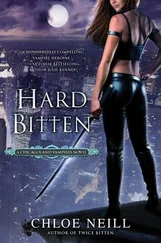

![Мелани Бенджамин - Госпожа отеля «Ритц» [litres]](/books/384861/melani-bendzhamin-gospozha-otelya-ritc-litres-thumb.webp)
